So many organisations and individuals involved in telecommunications continue to use the term 'exponential' to describe the growth in internet traffic, whether carried on fixed networks, or on wireless. Reports such as the ITU.M... forecast continued exponential growth until 2030 and there are numerous publications that cite growth following an exponential curve. But (with the possible expansion of the universe), nothing grows forever, let alone exponentially.
Let's consider the implications of exponential growth in internet data traffic. According to various sources, the amount of data transferred over the internet in 2018 will reach 1 Zettabyte (or 8x10²¹ bits). If growth continues exponentially at current rates (e.g. around a 50% year-on-year increase), the following things will happen: This is to say nothing of the electrical power requirements. Based on current future expectations of the energy required to transfer a bit of data (around 1 picoJoule per bit), by around 2080 we would need every single Watt of power generated on the planet Earth today to keep the Internet's lights on (let alone the problems of the sizes of batteries that would be needed in mobile devices). By 2113, we would need to capture every milliWatt of power that the Sun emits in order to power the Internet (in essence building a Dyson sphere). Slowly but surely the exponential growth in Internet traffic would begin to consume the whole universe.
This is to say nothing of the electrical power requirements. Based on current future expectations of the energy required to transfer a bit of data (around 1 picoJoule per bit), by around 2080 we would need every single Watt of power generated on the planet Earth today to keep the Internet's lights on (let alone the problems of the sizes of batteries that would be needed in mobile devices). By 2113, we would need to capture every milliWatt of power that the Sun emits in order to power the Internet (in essence building a Dyson sphere). Slowly but surely the exponential growth in Internet traffic would begin to consume the whole universe.
It is therefore to be hoped that the universe is actually infinite and continues to expand (though opinions on this are divided), otherwise it will run out of power before our insatiable demand for watching cat videos is finally sated.
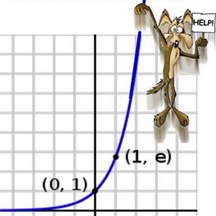 You might wonder what all this has got to do with radio spectrum, as there's always a Wireless Waffle angle on that topic. The simple fact is that although all the energy on the planet may be consumed keeping the Internet going, the amount of radio spectrum required to deliver the speed of connection necessary to transfer that much data will consume all available frequencies far before 2080. This is, of course, the desired goal of the mobile industry!
You might wonder what all this has got to do with radio spectrum, as there's always a Wireless Waffle angle on that topic. The simple fact is that although all the energy on the planet may be consumed keeping the Internet going, the amount of radio spectrum required to deliver the speed of connection necessary to transfer that much data will consume all available frequencies far before 2080. This is, of course, the desired goal of the mobile industry!
As Professor Albert Bartlett of the University of Colorado so aptly puts it:
Let's consider the implications of exponential growth in internet data traffic. According to various sources, the amount of data transferred over the internet in 2018 will reach 1 Zettabyte (or 8x10²¹ bits). If growth continues exponentially at current rates (e.g. around a 50% year-on-year increase), the following things will happen:
 By 2161, the number of bits of data transferred across the internet will equal the number of atoms in a human body.
By 2161, the number of bits of data transferred across the internet will equal the number of atoms in a human body.- By 2229, the number of bits of data transferred across the internet will equal the number of atoms in the planet Earth.
- By 2270, the number of bits of data transferred across the internet will equal the number of atoms in the Solar system.
- By 2329, the number of bits of data transferred across the internet will equal the number of atoms in the Milky Way galaxy (excluding dark matter).
 This is to say nothing of the electrical power requirements. Based on current future expectations of the energy required to transfer a bit of data (around 1 picoJoule per bit), by around 2080 we would need every single Watt of power generated on the planet Earth today to keep the Internet's lights on (let alone the problems of the sizes of batteries that would be needed in mobile devices). By 2113, we would need to capture every milliWatt of power that the Sun emits in order to power the Internet (in essence building a Dyson sphere). Slowly but surely the exponential growth in Internet traffic would begin to consume the whole universe.
This is to say nothing of the electrical power requirements. Based on current future expectations of the energy required to transfer a bit of data (around 1 picoJoule per bit), by around 2080 we would need every single Watt of power generated on the planet Earth today to keep the Internet's lights on (let alone the problems of the sizes of batteries that would be needed in mobile devices). By 2113, we would need to capture every milliWatt of power that the Sun emits in order to power the Internet (in essence building a Dyson sphere). Slowly but surely the exponential growth in Internet traffic would begin to consume the whole universe. It is therefore to be hoped that the universe is actually infinite and continues to expand (though opinions on this are divided), otherwise it will run out of power before our insatiable demand for watching cat videos is finally sated.
 You might wonder what all this has got to do with radio spectrum, as there's always a Wireless Waffle angle on that topic. The simple fact is that although all the energy on the planet may be consumed keeping the Internet going, the amount of radio spectrum required to deliver the speed of connection necessary to transfer that much data will consume all available frequencies far before 2080. This is, of course, the desired goal of the mobile industry!
You might wonder what all this has got to do with radio spectrum, as there's always a Wireless Waffle angle on that topic. The simple fact is that although all the energy on the planet may be consumed keeping the Internet going, the amount of radio spectrum required to deliver the speed of connection necessary to transfer that much data will consume all available frequencies far before 2080. This is, of course, the desired goal of the mobile industry!As Professor Albert Bartlett of the University of Colorado so aptly puts it:
The greatest shortcoming of the human race is our inability to understand the exponential function.
add comment
( 106 views )
| permalink
| 



 ( 2.8 / 954 )
( 2.8 / 954 )




 ( 2.8 / 954 )
( 2.8 / 954 )
Since his election as President of the United States, one of Donald Trump's key programmes has been the construction of a wall along the border with Mexico. Many people believe that the purpose of such a wall is to reduce illegal immigration along the border and to stop goods being illegally transported between the two countries without clearing the necessary customs.
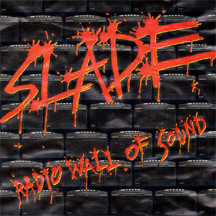 Wireless Waffle has discovered, however, that the reason for the construction of the wall is nothing to do with immigration or customs but is needed to prevent transmissions from mobile base stations using the 700 MHz band in Mexico from interfering with mobile base stations in the 700 MHz band in the USA.
Wireless Waffle has discovered, however, that the reason for the construction of the wall is nothing to do with immigration or customs but is needed to prevent transmissions from mobile base stations using the 700 MHz band in Mexico from interfering with mobile base stations in the 700 MHz band in the USA.
It is often said that radio signals do not respect international borders: signals from one country do not abruptly stop when they reach an arbitrary line on a map. As such, signals from mobile base stations in border areas are prone to cause interference to base stations on the opposite side of the border. Several European countries have reached an agreement (known as the HCM Agreement) which defines how much cross-border 'overspill' is permitted.
In general when signals cross borders, the use of the radio spectrum either side of the border is similar, that is to say that if the frequencies are used on one side for base station transmissions, it will be used on the other side for the same purpose. For example, if the signals from one country's mobile base stations are roughly the same strength along the border as those from its neighbour, and assuming that a mobile handset will latch onto the strongest signal, as it passes from one country to the next, it will automatically select the network for the country in which it is located.
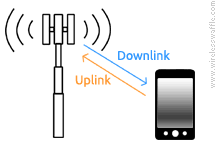 The worst case situation is where the transmitters on one side of the border (the 'downlink') which are typically 1000 Watts or more for a mobile base station are on the same frequencies as the receivers on the other (the 'uplink') which are trying to receive signals from mobile handsets with 1 Watt of power who are several miles away. This is akin to having someone in one country shouting directly into the ear of someone standing next to them who is simulatneously trying to hear one of their own residents whispering to them from a great distance. No manner of technological development will solve this problem and hence neighbouring countries try and avoid this happening.
The worst case situation is where the transmitters on one side of the border (the 'downlink') which are typically 1000 Watts or more for a mobile base station are on the same frequencies as the receivers on the other (the 'uplink') which are trying to receive signals from mobile handsets with 1 Watt of power who are several miles away. This is akin to having someone in one country shouting directly into the ear of someone standing next to them who is simulatneously trying to hear one of their own residents whispering to them from a great distance. No manner of technological development will solve this problem and hence neighbouring countries try and avoid this happening.
Between the US and Mexico in the 700 MHz band, however, this situation arises. The diagram below shows how the frequencies in this mobile band are used in either country. A downlink (mobile base station transmission) on the same frequency as an uplink (mobile base station receive) will cause exactly the kind of problems identified above.

So... the base stations in the 'lower 700 MHz band' in the USA will cause immense interference to the base stations in Mexico operating at the upper end of the Mexican 700 MHz band, and the base stations in Mexico will cause immense interference to the 'upper 700 MHz band' base stations in the USA.
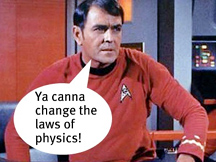 There is no straightforward solution to this problem, other than one or other country adopting the same frequency plan as its neighbour. As both countries already have services operating in the bands, this is beyond unlikely. The only way to overcome such a problem is therefore to try and stop signals from one side of the border reaching the other side. The laws of physics dictate that the only way to do this is to build a barrier that is impervious to radio signals, such as, for example, a tall metallic wall (or one with metal running up the inside). Metal boxes known as Faraday cages are used in laboratories (and sci-fi movies) to perform just this task.
There is no straightforward solution to this problem, other than one or other country adopting the same frequency plan as its neighbour. As both countries already have services operating in the bands, this is beyond unlikely. The only way to overcome such a problem is therefore to try and stop signals from one side of the border reaching the other side. The laws of physics dictate that the only way to do this is to build a barrier that is impervious to radio signals, such as, for example, a tall metallic wall (or one with metal running up the inside). Metal boxes known as Faraday cages are used in laboratories (and sci-fi movies) to perform just this task.
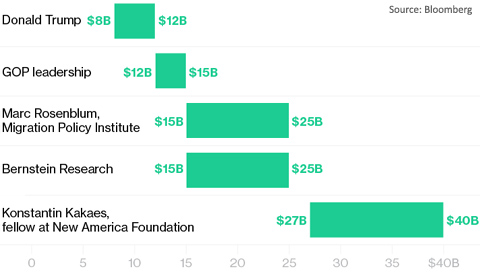
The 700 MHz band was sold at auction in the USA for US$19 billion in 2008. Estimates of the cost of the wall vary, but the mean value is around US$20 billion. This is no co-incidence. Having paid US$19 billion for the spectrum in the 700 MHz band, the US operators have a reasonable expectation that they can use the frequencies without undue interference and thus a 'Faraday Wall' is necessary. As long as Mr Trump can build it for less than US$19 billion, the operators will be happy, and the Federal Reserve will still have made a small profit on the sale of the spectrum. Win-win as they say.
 Wireless Waffle has discovered, however, that the reason for the construction of the wall is nothing to do with immigration or customs but is needed to prevent transmissions from mobile base stations using the 700 MHz band in Mexico from interfering with mobile base stations in the 700 MHz band in the USA.
Wireless Waffle has discovered, however, that the reason for the construction of the wall is nothing to do with immigration or customs but is needed to prevent transmissions from mobile base stations using the 700 MHz band in Mexico from interfering with mobile base stations in the 700 MHz band in the USA.It is often said that radio signals do not respect international borders: signals from one country do not abruptly stop when they reach an arbitrary line on a map. As such, signals from mobile base stations in border areas are prone to cause interference to base stations on the opposite side of the border. Several European countries have reached an agreement (known as the HCM Agreement) which defines how much cross-border 'overspill' is permitted.
In general when signals cross borders, the use of the radio spectrum either side of the border is similar, that is to say that if the frequencies are used on one side for base station transmissions, it will be used on the other side for the same purpose. For example, if the signals from one country's mobile base stations are roughly the same strength along the border as those from its neighbour, and assuming that a mobile handset will latch onto the strongest signal, as it passes from one country to the next, it will automatically select the network for the country in which it is located.
 The worst case situation is where the transmitters on one side of the border (the 'downlink') which are typically 1000 Watts or more for a mobile base station are on the same frequencies as the receivers on the other (the 'uplink') which are trying to receive signals from mobile handsets with 1 Watt of power who are several miles away. This is akin to having someone in one country shouting directly into the ear of someone standing next to them who is simulatneously trying to hear one of their own residents whispering to them from a great distance. No manner of technological development will solve this problem and hence neighbouring countries try and avoid this happening.
The worst case situation is where the transmitters on one side of the border (the 'downlink') which are typically 1000 Watts or more for a mobile base station are on the same frequencies as the receivers on the other (the 'uplink') which are trying to receive signals from mobile handsets with 1 Watt of power who are several miles away. This is akin to having someone in one country shouting directly into the ear of someone standing next to them who is simulatneously trying to hear one of their own residents whispering to them from a great distance. No manner of technological development will solve this problem and hence neighbouring countries try and avoid this happening. Between the US and Mexico in the 700 MHz band, however, this situation arises. The diagram below shows how the frequencies in this mobile band are used in either country. A downlink (mobile base station transmission) on the same frequency as an uplink (mobile base station receive) will cause exactly the kind of problems identified above.

So... the base stations in the 'lower 700 MHz band' in the USA will cause immense interference to the base stations in Mexico operating at the upper end of the Mexican 700 MHz band, and the base stations in Mexico will cause immense interference to the 'upper 700 MHz band' base stations in the USA.
 There is no straightforward solution to this problem, other than one or other country adopting the same frequency plan as its neighbour. As both countries already have services operating in the bands, this is beyond unlikely. The only way to overcome such a problem is therefore to try and stop signals from one side of the border reaching the other side. The laws of physics dictate that the only way to do this is to build a barrier that is impervious to radio signals, such as, for example, a tall metallic wall (or one with metal running up the inside). Metal boxes known as Faraday cages are used in laboratories (and sci-fi movies) to perform just this task.
There is no straightforward solution to this problem, other than one or other country adopting the same frequency plan as its neighbour. As both countries already have services operating in the bands, this is beyond unlikely. The only way to overcome such a problem is therefore to try and stop signals from one side of the border reaching the other side. The laws of physics dictate that the only way to do this is to build a barrier that is impervious to radio signals, such as, for example, a tall metallic wall (or one with metal running up the inside). Metal boxes known as Faraday cages are used in laboratories (and sci-fi movies) to perform just this task. 
The 700 MHz band was sold at auction in the USA for US$19 billion in 2008. Estimates of the cost of the wall vary, but the mean value is around US$20 billion. This is no co-incidence. Having paid US$19 billion for the spectrum in the 700 MHz band, the US operators have a reasonable expectation that they can use the frequencies without undue interference and thus a 'Faraday Wall' is necessary. As long as Mr Trump can build it for less than US$19 billion, the operators will be happy, and the Federal Reserve will still have made a small profit on the sale of the spectrum. Win-win as they say.
Wireless Waffle recently suggested that the high power short-wave transmissions coming from the HAARP site in Alaska were trying to trigger lightning strikes in an attempt to send radio signals strong enough to be received on a remote planet.
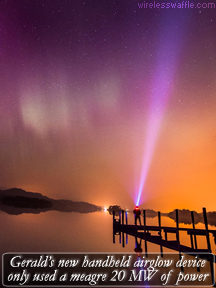 It seems that they are not the only ones who are generating very high power short-wave transmissions, but that the enormous dish at Arecibo in Puerto Rico has also been turned into a giant transmitter. Experiments taking place right now (from 24 to 31 July 2017) involve transmissions around either 5.125 or 8.175 MHz (the most recent transmissions have been on 5.095 MHz) with an effective radiated power of around 100 MW (MegaWatts).
It seems that they are not the only ones who are generating very high power short-wave transmissions, but that the enormous dish at Arecibo in Puerto Rico has also been turned into a giant transmitter. Experiments taking place right now (from 24 to 31 July 2017) involve transmissions around either 5.125 or 8.175 MHz (the most recent transmissions have been on 5.095 MHz) with an effective radiated power of around 100 MW (MegaWatts).
The purpose of the transmissions is to try and heat up the ionosphere for various experiments, including trying to establish Langmuir waves which excite oxygen atoms sufficiently that they emit light at visible wavelengths and light up the night sky in something known as 'airglow'. You couldn't make this stuff up!
Those strange lights in the night sky that you thought were UFOs... it's just scientists getting their oxygen atoms all excited. Nothing to worry about.
 It seems that they are not the only ones who are generating very high power short-wave transmissions, but that the enormous dish at Arecibo in Puerto Rico has also been turned into a giant transmitter. Experiments taking place right now (from 24 to 31 July 2017) involve transmissions around either 5.125 or 8.175 MHz (the most recent transmissions have been on 5.095 MHz) with an effective radiated power of around 100 MW (MegaWatts).
It seems that they are not the only ones who are generating very high power short-wave transmissions, but that the enormous dish at Arecibo in Puerto Rico has also been turned into a giant transmitter. Experiments taking place right now (from 24 to 31 July 2017) involve transmissions around either 5.125 or 8.175 MHz (the most recent transmissions have been on 5.095 MHz) with an effective radiated power of around 100 MW (MegaWatts). The purpose of the transmissions is to try and heat up the ionosphere for various experiments, including trying to establish Langmuir waves which excite oxygen atoms sufficiently that they emit light at visible wavelengths and light up the night sky in something known as 'airglow'. You couldn't make this stuff up!
Those strange lights in the night sky that you thought were UFOs... it's just scientists getting their oxygen atoms all excited. Nothing to worry about.
The world of wireless, spectrum and radio has so many acronyms and abbreviations that Wireless Waffle thought it might be useful to provide an alphabetical glossary of terms to help explain what on Earth is going on in this complex and complicated field of electromagnetic mechanics.
 CEPT - Considers Every Point Tortuously - A largely technical organisation whose job is to spend so long pontificating over matters that whatever it is they were doing in the first place has been long forgotten by the time they have finished.
CEPT - Considers Every Point Tortuously - A largely technical organisation whose job is to spend so long pontificating over matters that whatever it is they were doing in the first place has been long forgotten by the time they have finished.- DAB - Dribble And Bibble - A radio broadcasting technology in which all music and speech, no matter how beautiful, is converted into a stream of incomprehensible bubbling sounds. Not completely dissimilar to GSM.
- DRM - Dribbles Really Magnificently - Another radio broadcasting technology that converts all sounds into incomprehensible bubbling sounds unless reception is perfect, which, oddly, it is specifically designed never to be.
- DSA - Doesn't Solve Anything - A method by which spectrum that the owners still need is offered to those who don't want it, in a way that makes it about as attractive as finding a sand-pit in the middle of the Sahara desert.
- DTT - Defunct Dated Technology - A technology for sending televisual entertainfold across the etheric airwaves to those wishing to watch Laurel and Hardy movies. Often uses SD - Sensual Depreviation - to convince users that it is better than nothing.
 ESA - Egotistical Space Aliens - An organisation which thinks that unless you own real-estate at least 30 km above the surface of the Earth, you can't possibly understand anything that passes through their extra-terrestrial minds.
ESA - Egotistical Space Aliens - An organisation which thinks that unless you own real-estate at least 30 km above the surface of the Earth, you can't possibly understand anything that passes through their extra-terrestrial minds.- ESOA - Excellent Services Over All - The Platinum sponsor of this useful guide to acronyms and abbreviations, even if their satellites will eventually cause the death of George Clooney and near-death of Sandra Bullock.
- ETSI - Experts Testing Stupid Ideas - A European organisation that is forced, by law, to produce specifications for any idea that is thrown at it, no matter how outlandish or pointless (see GSM, IoT, UMTS, etc).
- GSM - Garbled Speech Mumbler - A mobile network which makes voice calls sound like they are coming from 20,000 leagues beneath the sea, so that future technologies can be hailed as being so much better. Also known as '2G' (twice garbled).
- GSMA - Greedy Spectrum Munching Androids - An organisation hell-bent on gobbling all spectrum in persuit of its end-goal of making all other wireless users kow-tow to its wanton soup.
 ITU - Insolvent and Terribly Unfashionable - A near-bankrupt agency of the United Nations which fleeces their members and then uses the proceeds to find ways to put those self-same members out of business.
ITU - Insolvent and Terribly Unfashionable - A near-bankrupt agency of the United Nations which fleeces their members and then uses the proceeds to find ways to put those self-same members out of business.- IoT - It's Ostensibly Toasters - The future of the internet in which toasters (and kettles and fridge-freezers) need to sent each other gigabytes of data and thus find ways of making you and I pay the mobile operators more money.
- LSA - Lazy Spectrum Administrations - A method by which regulators who are too lazy to do things properly try to find a back-door method of not having to arse about with auctions or any of that complicated nonsense.
- LTE - Licences Too Expensive - A mobile network that actually overcomes many of the faults of its predecessors, but for which the necessary spectrum licences require operators to re-mortgage their cell sites twice over.
- RSPG - Ruthlessley Spouting Pretentious Garbage - A European organisation which waits for other people to come up with ideas about spectrum management (no matter whether good or bad) and then claims them as their own.
- SETI - Seemed Like A Good Idea At The Time - One of those acronyms where the letters don't match the description in English. You have to speak the southern Charon dialect of Borlorks for the acronym to make any more sense than their goals do.
- TACS - Terrifically Annoying Crackly Sound - A mobile network designed to intersperse voice calls with inane crackling noises making users believe that they are communicating on a system so hi-tech that the calls could come from Mars and be no worse.
- UMTS - Users Must Type Slowly - A mobile network that delivers internet content at speeds only impressive to those for whom typing is more difficult than remembering how to ask for two beers in Spanish whilst on holiday in Portugal.
- WSD - Works Sometimes Dmpff'lrrt - A highly risky and unproven way of using radio spectrum that may or may not be clear of other users to connect fridges, kettles and fridge-freezers together (see IoT).
 CTRL - Click To Release Leprechaun - A button on computer keyboards that most people believe has a technical function but is actually there as a way of allowing the Irish security services to spy on your every move.
CTRL - Click To Release Leprechaun - A button on computer keyboards that most people believe has a technical function but is actually there as a way of allowing the Irish security services to spy on your every move.

